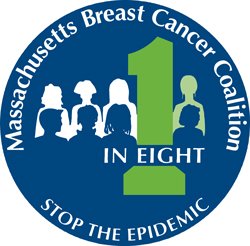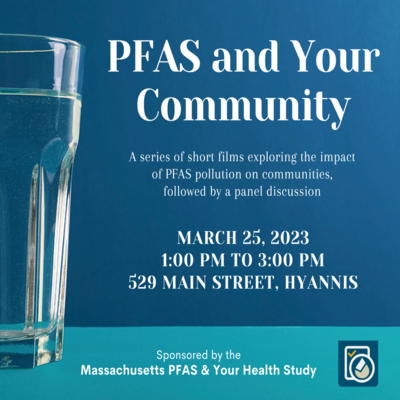On March 19, Cape Cod Times included Cheryl Osimo, MBCC’s Executive Director, as a featured columnist of “Opinion/Your Turn: PFAS are everywhere. Here are some ways to get informed, involved.“
Every day, there are news headlines across the country about a class of chemicals called PFAS. More and more communities are discovering PFAS in their drinking water. These chemicals are also showing up in fish, wildlife, and the food supply. The Massachusetts Department of Public Health just issued new fish consumption advisories for ponds across the state because of PFAS contamination.
Here in Barnstable, over $20 million has been spent to install carbon filters on all Hyannis water system public wells to remove PFAS. It’s good news that Hyannis tap water is now being treated to remove PFAS. But where did these chemicals come from, what are the concerns, and what can be done to ensure that PFAS don’t continue to enter the environment?
PFAS are a class of over 12,000 chemicals used in a multitude of consumer products. These chemicals contain fluorine-carbon bonds that give them the ability to repel both oil and water and make these “forever chemicals” extremely persistent in the environment and in our bodies. PFAS are commonly used in clothing, food packaging, and furniture, and they are also a component of aqueous film-forming foams (AFFF) used to fight oil and gasoline fires.
PFAS exposure is nearly ubiquitous; the Centers for Disease Control and Prevention found that over 98% of Americans have PFAS in their blood. Based on what we know, these widespread exposures are concerning. PFAS have been associated with elevated cholesterol, ulcerative colitis, thyroid disease, liver disease, testicular and kidney cancers, pregnancy-induced hypertension, immunotoxicity, renal dysfunction, and dyslipidemia in humans. Laboratory studies found that PFAS can affect mammary gland development, suggesting a possible link with breast cancer. But there’s still a lot that we don’t know about the ways that PFAS can affect our health.
To learn more, Massachusetts Breast Cancer Coalition is proud to be partnering with researchers from Silent Spring Institute and academic institutions to conduct research on exposures to PFAS and their health effects. One of these studies — the Massachusetts PFAS and Your Health Study — is now enrolling residents who lived in Hyannis between 2006 and 2016. MBCC is also part of the PFAS-REACH study, which aims to learn more about PFAS effects on the immune systems of young children, and the University of Rhode Island’s STEEP Superfund Research Program, which has measured PFAS in private wells on Cape Cod.
What can you do?
LEARN MORE: Join us on Saturday at 1 p.m. for “PFAS and Your Community,” an event to be held at 529 Main St., Hyannis. This event will feature short films that discuss how PFAS can affect communities, followed by panel discussions with state Sen. Julian Cyr, Barnstable Town Manager Mark Ells, Dr. Laurel Schaider from Silent Spring Institute, and others. Dr. Schaider is the lead scientist on the Massachusetts PFAS and Your Health Study and the PFAS-REACH Study. This is your chance to hear from experts and community leaders and get answers to your questions.
SIGN UP: If you lived in Hyannis between 2006 and 2016, consider signing up for the Massachusetts PFAS and Your Health Study. This national study, funded by the CDC, will provide new information about the ways that PFAS chemicals can affect our health. We especially need children ages 4-17 to enroll. Learn more at bit.ly/ma-pfas.
GET INVOLVED: Massachusetts Breast Cancer Coalition is supporting two bills that have been proposed at the Statehouse. The Massachusetts PFAS Act would end the sale of many products with intentionally added PFAS and help cities and towns address existing contamination. The Toxic-Free Kids Act would remove toxic chemicals, including PFAS, from children’s toys, clothing, and personal care products. Learn more on the breast cancer coalition website, mbcc.org.
As a mother and grandmother, I am always looking out for my family’s health, and as a Cape activist, I am doing the same for my friends and neighbors here. I’m proud to be in a town that has taken major steps to remediate PFAS contamination, but there’s more work to be done. Please learn more, sign up for research studies, and get involved to protect the health of our children, grandchildren, and future generations.

